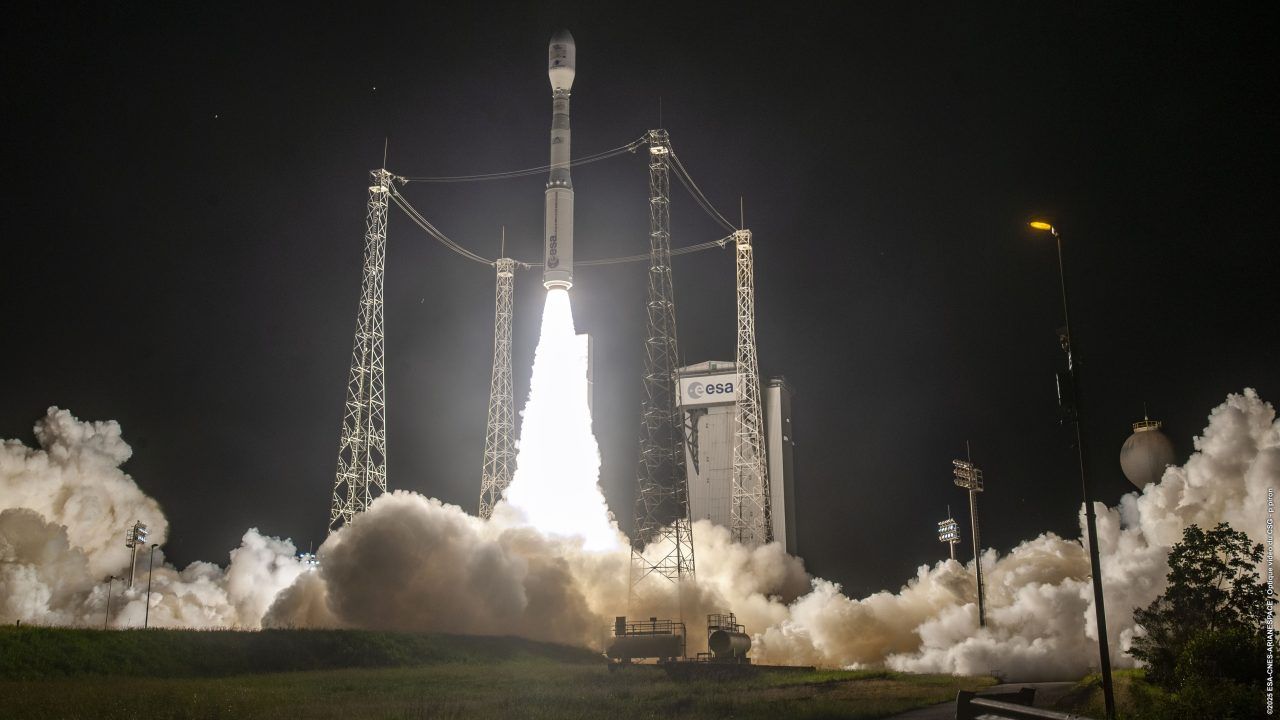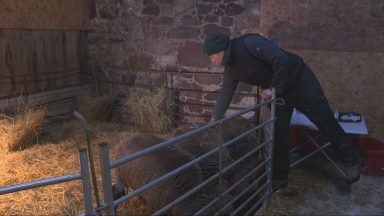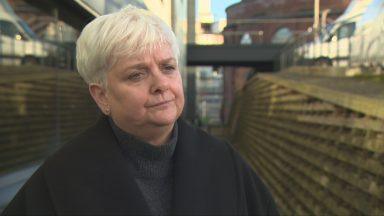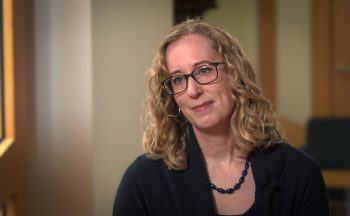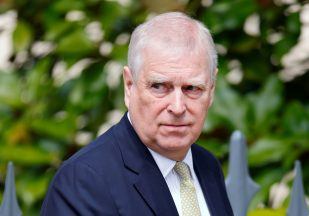Scientists from the University of Edinburgh are celebrating the successful launch of a new satellite set to transform the way the world monitors carbon dioxide.
MicroCarb – a landmark UK-France mission – has soared into orbit aboard the 35-metre Vega-C rocket, launched from French Guiana.
It’s designed to deliver the most detailed satellite measurements of atmospheric CO2 ever achieved from space.
The groundbreaking satellite marks a major milestone in the fight against climate change by providing more accurate climate data, experts say.
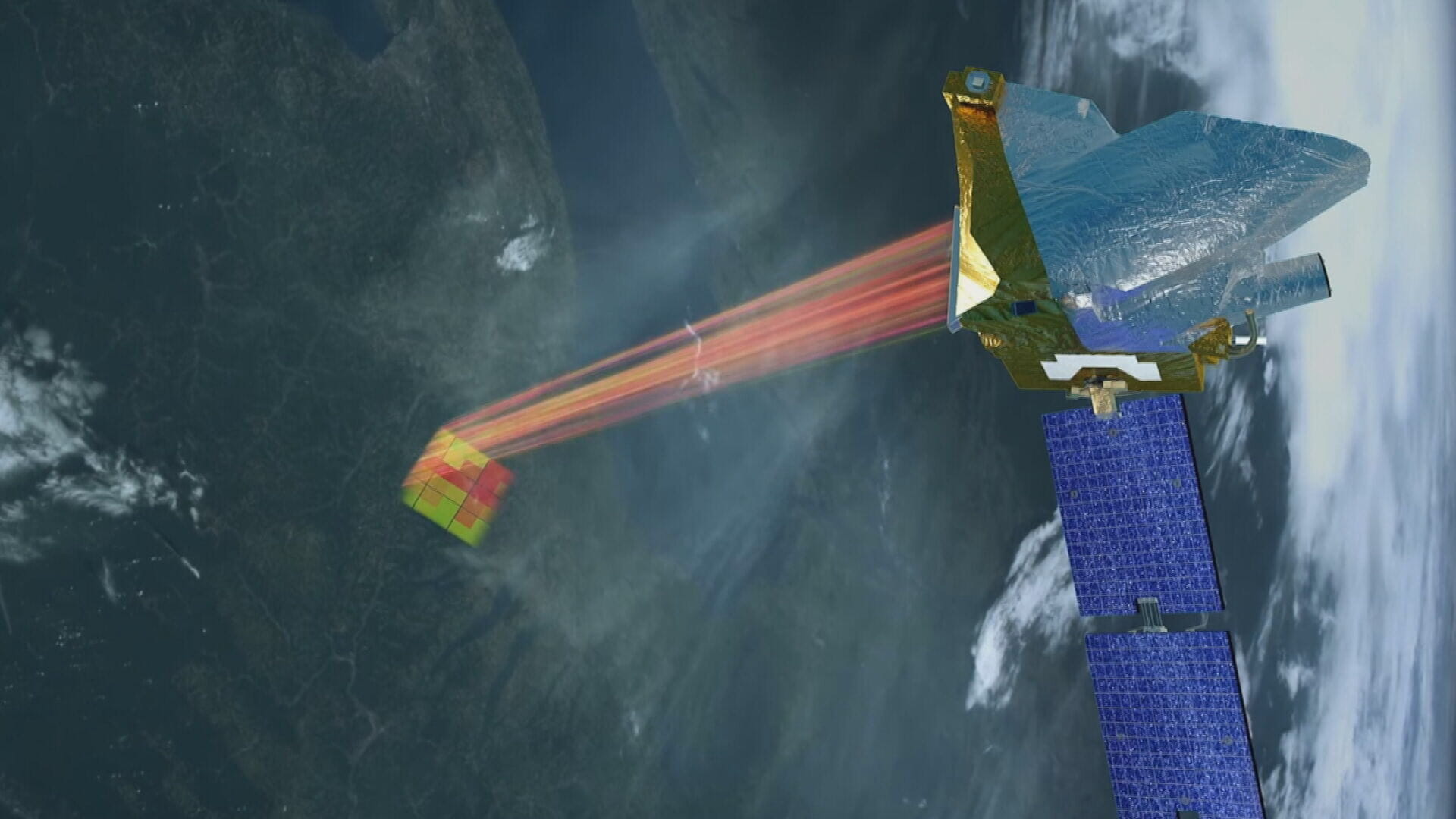 STV News
STV NewsDesigned to act as a “climate watchdog”, MicroCarb will pinpoint how much carbon dioxide is being emitted and absorbed by cities, oceans and forests in unprecedented detail.
Its readings will feed into global efforts to tackle climate change and limit global warming to 1.5C.
University of Edinburgh space science professor Paul Palmer told STV News: “For us, there are still some very fundamental questions about our knowledge of the global carbon cycle particularly now with our warming world.
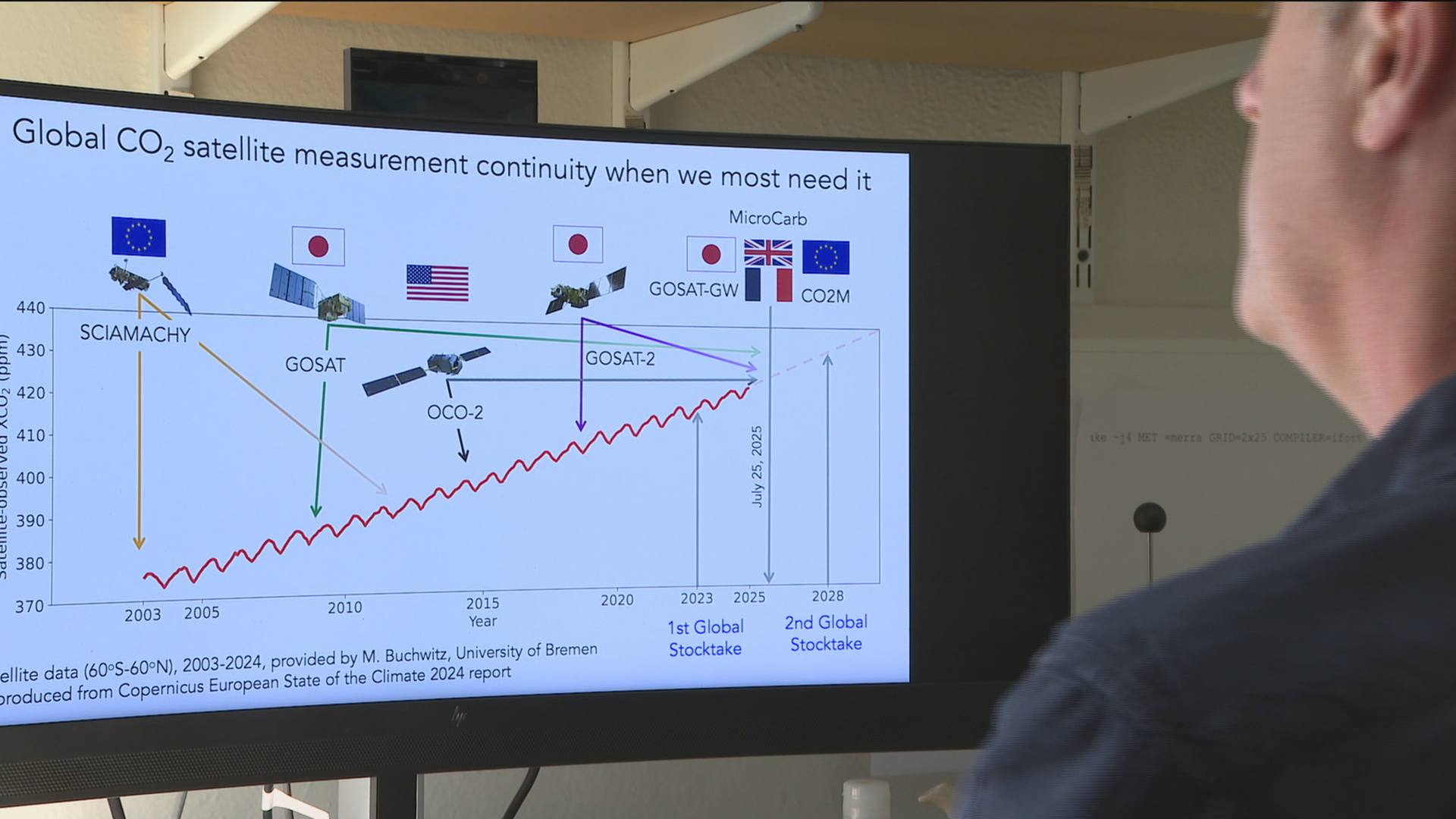 STV News
STV News“We’re seeing things changing very rapidly, particularly in the tropics, and also because we’re going to collect data that will contribute to the Paris Agreement.
“So, understanding which countries are emitting and absorbing what will play a role in our delivery of that information.”
MicroCarb can also track the faint glow plants emit when they take in too much energy from the sun than they can use, revealing seasonal trends of carbon absorption.
Philippe Landiech, senior project leader for MicroCarb at the National d’études Spatiales (French National Space Agency). said watching the satellite successfully enter orbit was “a great pleasure”.
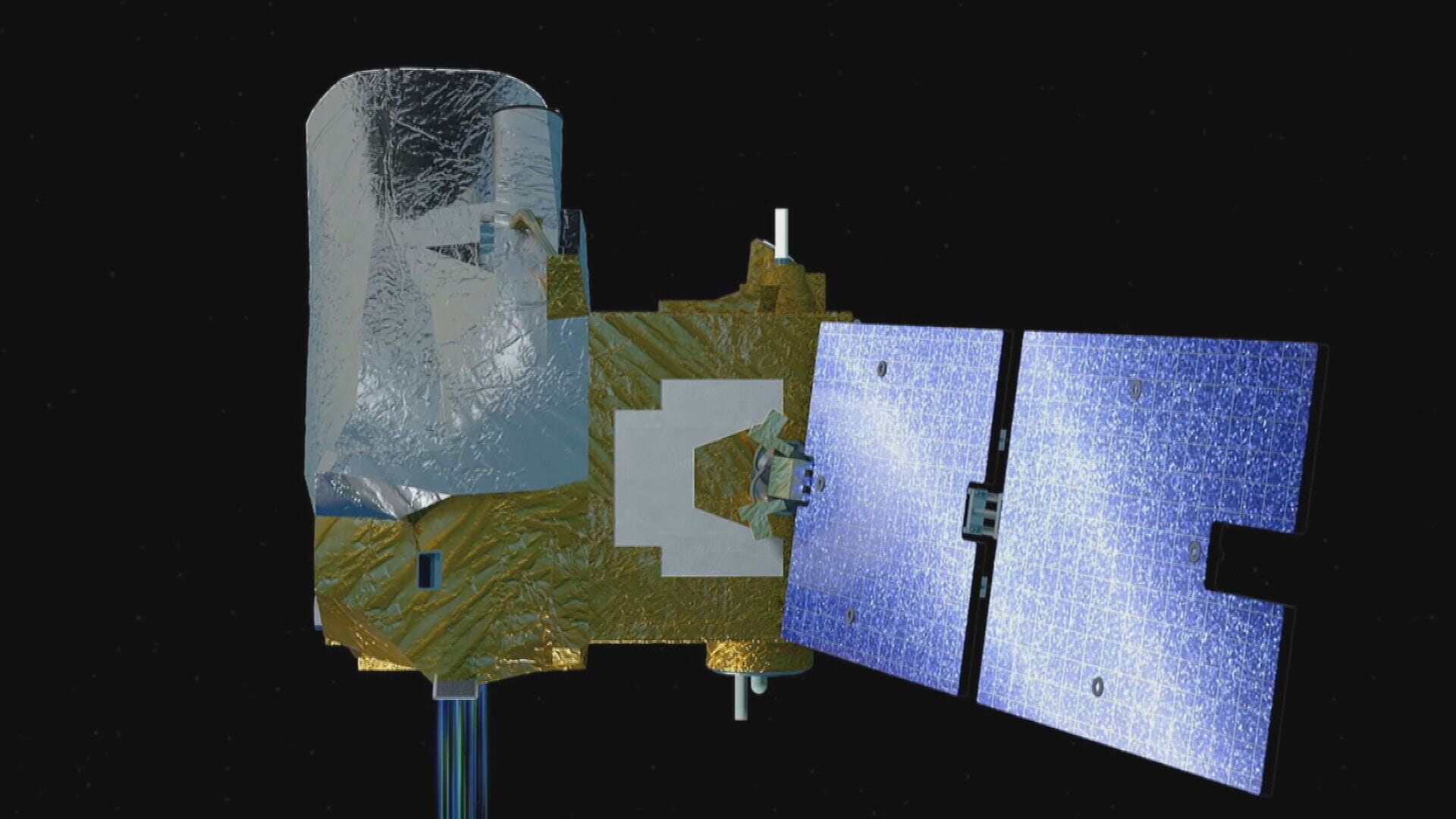 UK Space Agendy
UK Space AgendyHe said: “We had a few seconds of anxiety – there was great satisfaction once everything was okay!
“The aim of MicroCarb is to get worldwide access of the CO₂ contribution in the atmosphere and measure the CO2 content between sources around the Earth.
“To have this in the longer timeframe, we want to see the seasonal effects better in a longer timeframe and track global trends linked to the climate change we are facing.”
UK minister for space Sir Chris Bryant said: “Satellites like Microcarb are essentially our eyes in the sky,” he said. “Over half of the critical data we use to understand climate change comes from space.”
“This groundbreaking mission is proof of what can be achieved when we harness the strength of Britain’s burgeoning space industry, together with our deep scientific expertise. Bolstered with £15m UK Government backing, the MicroCarb satellite will overhaul our ability to track carbon emissions – supporting the clean energy mission that’s key to this Government’s Plan for Change.
“It’s also further evidence of the value of our deep and unique relationship with France: a partnership which the Prime Minister reinforced, with President Macron, at the UK-France Summit earlier this month.”
Follow STV News on WhatsApp
Scan the QR code on your mobile device for all the latest news from around the country


